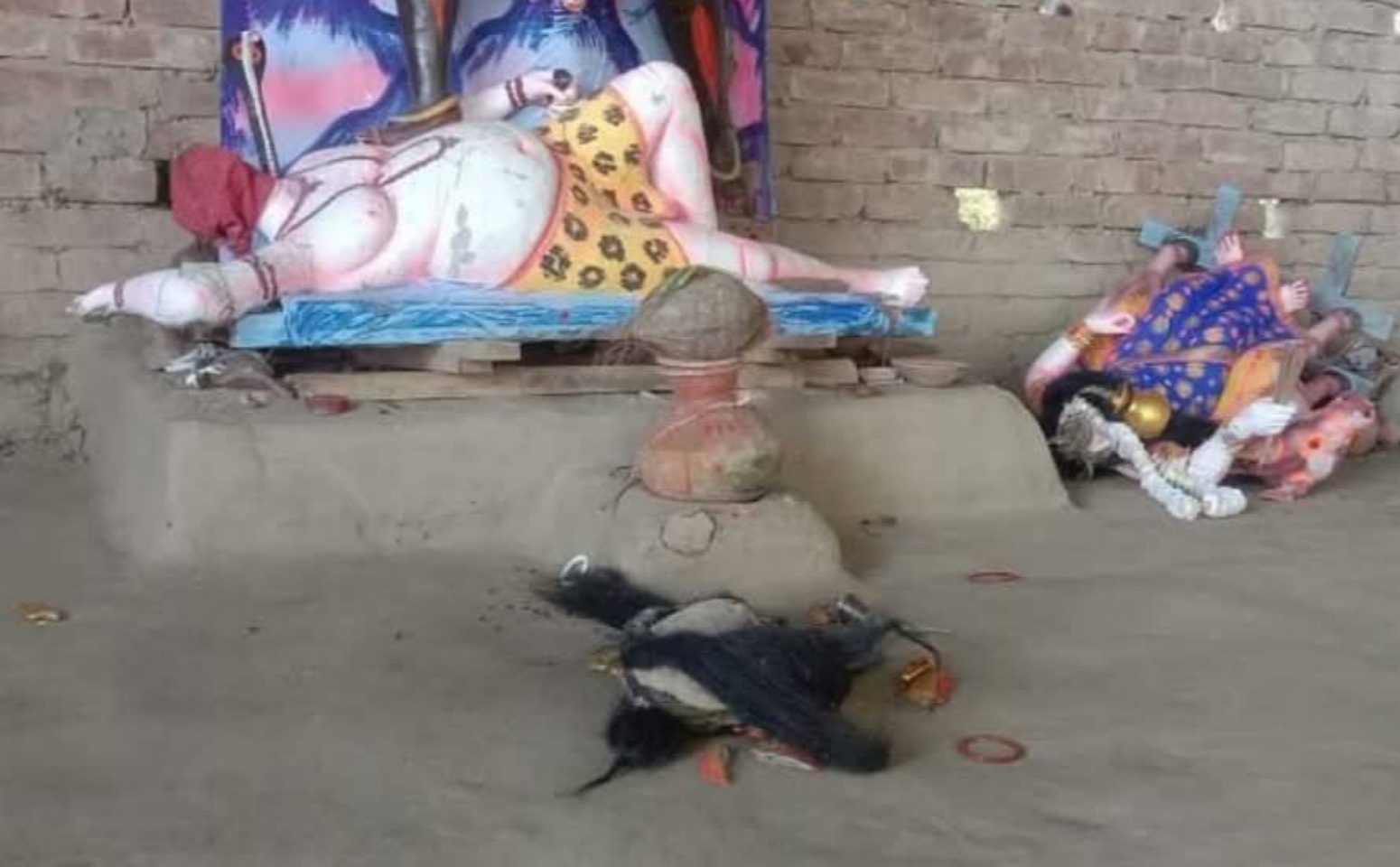
Hindu Voice Team: A hundred-year-old Kali temple in Garpara, Manikganj, was set ablaze in a pre-dawn arson attack on 27 September 2025. The wooden shrine and the sacred idol were consumed by fire before help arrived, leaving a shattered community and smouldering ruins where devotion once stood. The basic facts of the attack are now on record.
This is not an isolated outrage; it is the latest in a string of deliberate assaults on Hindu places of worship across the country. Local witnesses and community leaders describe a familiar script — miscreants strike under cover of darkness, idols are desecrated or burned, and a frightened minority is left to count losses while the clock on justice never seems to tick. Such incidents have provoked condemnation from civic groups and minority organisations, yet the pattern persists.
To call this a “law-and-order failure” understates the case. When attacks recur, when perpetrators are not visibly and forcefully brought to account, when local authorities issue the ritual phrases of “investigation ongoing” but no deterrent follows, silence becomes policy. Inaction is not neutrality; it is tacit tolerance that hands extremists the licence to repeat and escalate their crimes. The State’s measured words and belated promises have become an enabling apparatus for hatred.
There is a wider context to this rot. Analysts warn that growing radicalisation and organized anti-minority mobilisation have exploited political vacuums and societal fissures, turning episodic violence into a trend with real strategic heft. When social institutions and the state fail to act decisively, the consequence is predictable: emboldened attackers, anxious communities, and an erosion of the plural civic compact. The Manikganj arson must therefore be read as symptomatic of a deeper, systemic failure.
The remedies are simple and non-negotiable. First, immediate and transparent criminal investigations that lead to public arrests, prosecution and exemplary sentences. Second, state-funded restoration of the temple and fair compensation to victims. Third, independent inquiries into administrative negligence where it exists, with firings and prosecutions for officials who looked the other way. Fourth, concrete, nationwide security measures and rapid-response protocols to protect minority worship sites. Words alone will not suffice.
If the government truly cares for national unity and the rule of law, it must act now — not with hollow condemnations, not with promises that evaporate under political pressure, but with visible, sustained enforcement of justice. The choice is stark: either the state reaffirms its duty to protect every citizen regardless of faith, or it will be remembered as the administration that let hatred burn temples and conscience alike. Civil society will not forget, and history will not forgive complacency.
The victims in Manikganj demand justice. The conscience of the nation demands action. The State must answer.